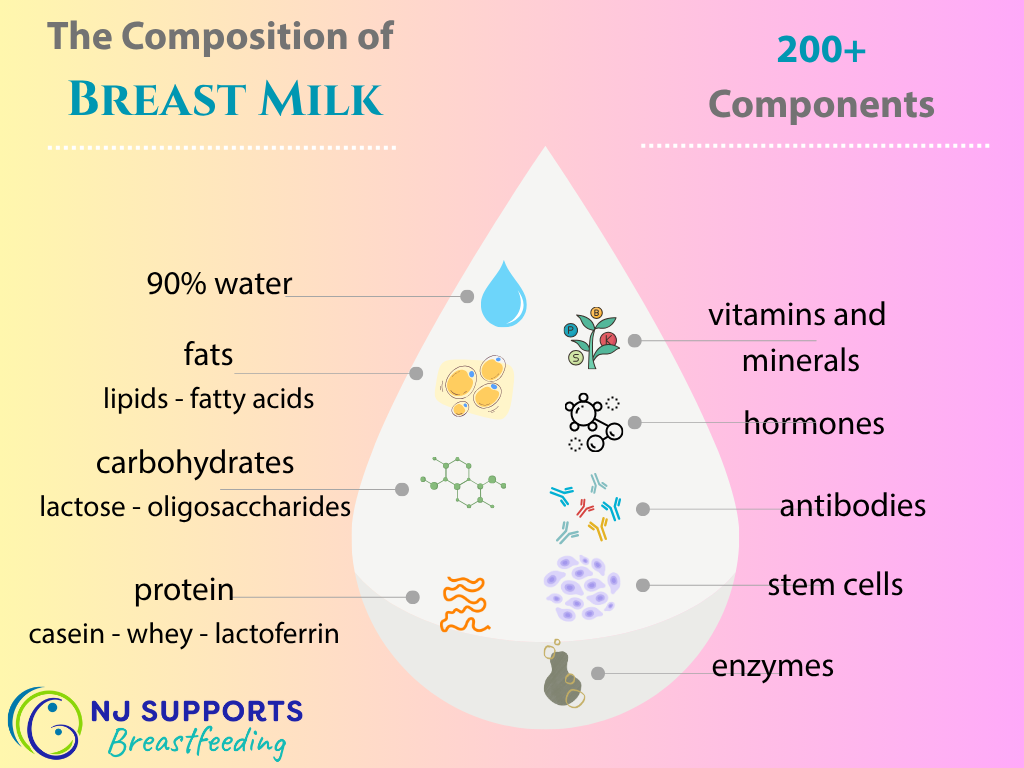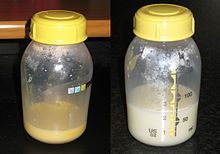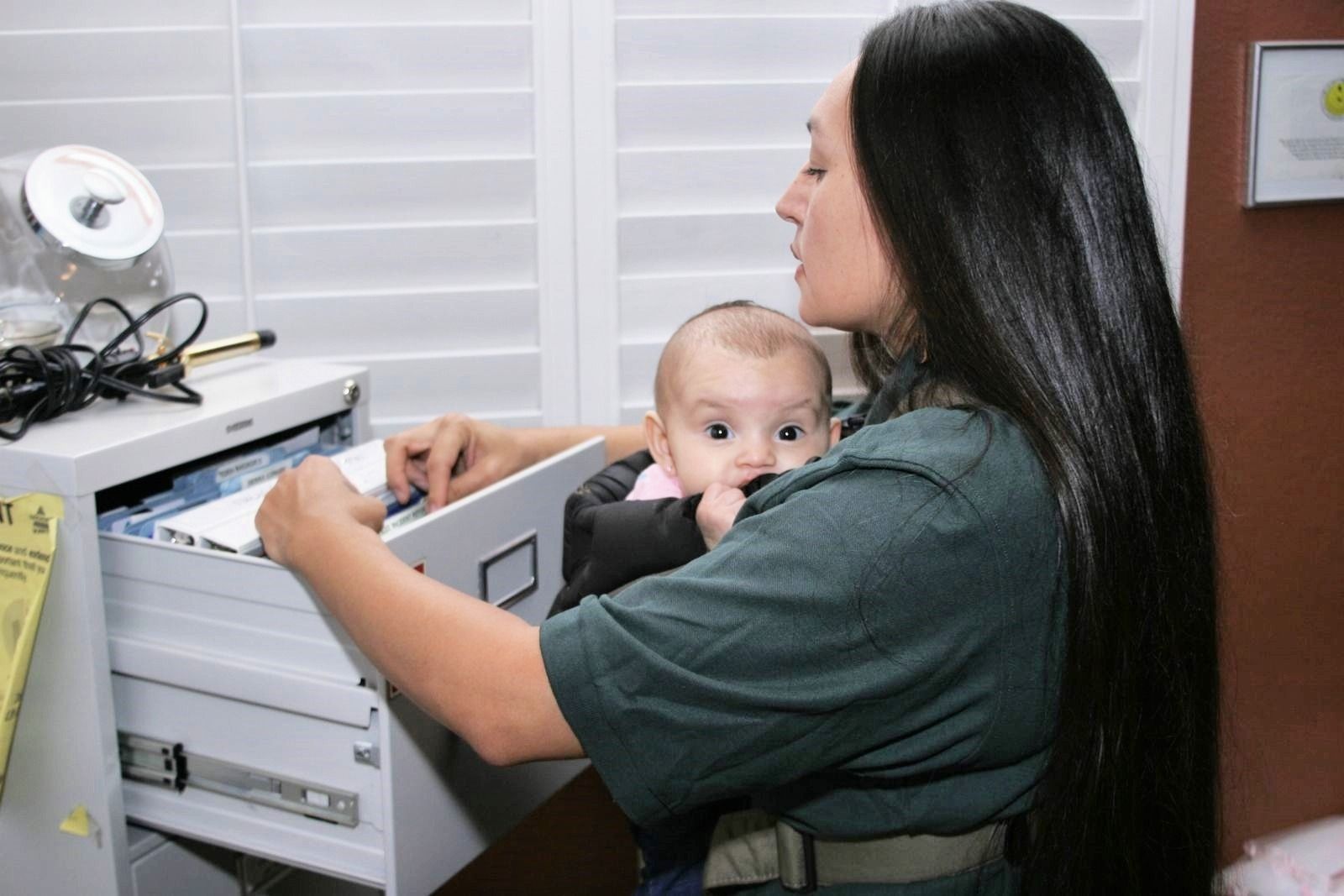Your infant feeding choice strongly impacts both you and your baby’s life for the first year and beyond. Should you choose human milk, infant formula or both? Does your choice matter? The answer is yes! How can you make an informed choice? Read on!
Breastfeeding Benefits Babies
Human milk is the custom-made, first food for babies. It is full of the ingredients they need for their best growth and development. It contains protein, fat, carbohydrates, and water in just the right amounts the baby needs. Human milk also contains the following
building blocks for the growing baby:
- Vitamins
- Minerals
- Enzymes
- Antioxidants
- Hormones
- Growth factors

Provides Food and Protection
Not only is breast milk food, but it also acts as medicine for all babies, especially sick, and premature infants. From the day your baby is born, breast milk has ingredients that protect and develop your baby’s immune system, such as antibodies that fight bacteria and viruses. It has prebiotics and probiotics that increase the “good” bacteria in your baby’s digestive system and keep the “bad” bacteria in check. Breastfed infants have a lower risk of the following conditions:
- Ear infections
- Lower respiratory infections
- Severe diarrhea
- Childhood asthma
- Type 1 and 2 diabetes
- Obesity
- Some forms of childhood leukemia
- Sudden Infant Death Syndrome (SIDS)
- Necrotizing Enterocolitis (NEC)
A Natural Recipe for
Day and Night
Did you know that human milk is also a dynamic food that changes both over the course of a day and over the weeks and months, for as long as you provide it? For example, milk made during the daytime is higher in hormones that keep the baby more alert and immune factors that protect the baby. Meanwhile, nighttime milk contains more melatonin, a hormone that promotes sleep.
Your milk is so tailored to the baby’s needs that when you are sick, your milk will contain antibodies that protect your baby against that illness. Human milk is also the easiest food for a new baby to digest. Breastfed babies’ stools are softer and have a milder, more natural smell than those of babies fed infant formula.
The Longer, the Better
Colostrum is the special milk your body makes in the first days after the baby’s birth. It helps protect the baby from illness in the early weeks as they become used to life outside the womb. As the infant grows, the amounts of nutrients change to meet the baby’s growth needs. Human milk continues to boost your child’s health during the infant and toddler stages, and it provides health benefits that last throughout childhood.
The longer the baby is breastfed and the more of your milk your baby receives, the more health benefits the baby gets. For these reasons, the American Academy of Pediatrics and the World Health Organization recommend that all babies be exclusively breastfed during the first six months of life and that breastfeeding should continue for up to 2 years of age and beyond for the best health outcomes. For more information on colostrum and how to hand express when the baby does not latch, visit our Beginning Breastfeeding page.

“I am currently breastfeeding my baby boy who is four months old and I also breastfed my two girls. In the beginning, it was hard because I didn’t know what I was doing, even though it’s my 3rd baby it was still different.
I would feel pain from the baby feeding or when my breast is full of milk,
but I did it for as long as I could because it's good for my children.
It gets easier as time passes by, and you learn more. I also received some education on the importance of breastfeeding and tips from my Community Health Worker that were also helpful. Overall, it's a beautiful experience that I have been able to go through.”
Breastfeeding Is Also Good for YOU
Research shows that breastfeeding supports women’s health by reducing their risk of:
- Breast cancer
- Ovarian cancer
- Endometrial cancer
- Type 2 diabetes
- Cardiovascular disease
These health advantages increase the longer you breastfeed. These health benefits will follow you throughout your life.
What’s more, during breastfeeding your body releases the hormone oxytocin which shrinks the uterus back to its normal size after birth and helps to reduce bleeding. Also, breastfeeding exclusively for the first 6 months can help delay the return of your period and lengthen the time between pregnancies, which helps you recover more easily after birth.
Breastfeeding is About More than Just the Milk!
Breastfeeding and chestfeeding are about more than just the nutrition. They create skin-to-skin closeness that triggers the release of important hormones, oxytocin and prolactin, in both you and your baby. Oxytocin strengthens emotional attachment, bonding, and trust, while prolactin promotes feelings of nurturing.
You may feel less stress by breastfeeding because:
- The hormones of breastfeeding make you feel calmer.
- A healthier baby means fewer doctor visits which means less time, cost and lost days of work for you.
- Human milk is always available at the right temperature and with no need for equipment or mixing.
- You will have food for your baby even during a natural disaster or public health emergency.

Learning how to feed can take time, extra support, and patience. Knowing that your body is providing the nutrients your baby needs for healthy growth and development is a great feeling. Many parents who keep trying and then overcome early feeding challenges say that it made them feel empowered and more self-confident in all areas of parenting.
Breastfeeding and Health Equity
Health equity is the fair chance for all people to reach their highest level of health, regardless of their race, ethnicity, where they live, or how much money they have. In New Jersey and across the nation, health equity is an important issue, because Black women and infants suffer from higher rates of illness and death during pregnancy, childbirth, and the year after birth than all other races.
Supporting breastfeeding is an important strategy for improving overall public health and creating health equity. The health advantages of breastfeeding and human milk can help reduce maternal and infant illness and death. Lowered risks of breast cancer and cardiovascular disease are especially vital for Black women because they experience higher rates of and worse health outcomes from these conditions during their lives.
Black women have always breastfed, but their breastfeeding rates dropped lower in the last century. The cruel practices of slavery, including forcing enslaved Black mothers to breastfeed the slave owner’s children instead of their own, has caused a legacy of trauma and the loss of the breastfeeding bond in many Black families.

Biased treatment in the health care system, less access to donor human milk, and infant formula marketing targeting Black communities have also contributed to lower Black breastfeeding rates. Making accurate information more available to allow informed decision making and increasing breastfeeding support for all will foster health equity for all New Jersey families.
Medical Reasons Not to Breastfeed
Breastfeeding and feeding expressed milk can continue during most illnesses, including colds, the flu, viruses, and most infections. It is usually not necessary to stop feeding or stay away from the baby when you are ill. That's because your baby was already exposed to the illness at least a day or two before your symptoms started. As soon as you are exposed to a virus, your body starts making antibodies in your milk that fight the virus, so your milk provides additional protection to your baby. Also, most prescription and over-the-counter medications are considered compatible with breastfeeding. For more on medications during breastfeeding, see Breastfeeding in Special Situations.
There are very few true medical reasons to completely stop breastfeeding or feeding your milk even on a temporary basis. If you need to pause breastfeeding temporarily or can't be near your baby due to illness, you may still be able to pump the milk and save it for later. In other situations when the milk cannot be fed to the baby, you may still decide to pump and discard ("pump and dump") the milk to maintain your milk supply so that you can resume breastfeeding after your illness.
For the most current recommendations on medical reasons you should not breastfeed or must temporarily stop, see the Centers for Disease Control and Prevention's Contraindications to Breastfeeding webpage.






